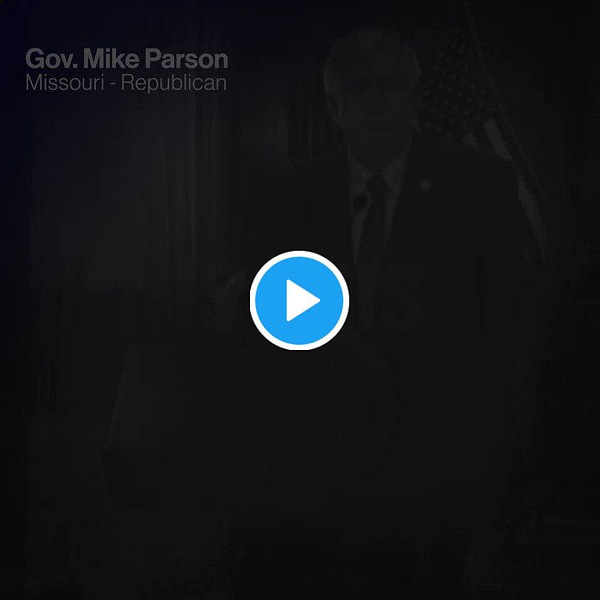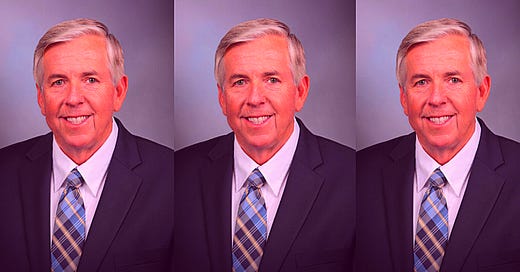I was sick really often growing up. Not chronically, but definitely often and severely enough that I look back on my childhood and wonder if I might have had an immunodeficiency. Or if I still do — from ages 19 to 23 I suffered frequent, months-long sinus infections, until I got a proper allergy prescription. Last year, I got both tonsillitis and bronchitis within months of each other. I tested negative for COVID two weekends ago, a comfort given my medical history.
I hated getting sick because it often meant missing something exciting, like “Ice Cream Fridays” and picture day. Often enough I just had an ear infection or strep throat, but twice I was diagnosed with extensive illnesses that kept me home for at least a week. (In third grade, it was pneumonia. In fifth grade, it was the chickenpox.)
The elementary school nurse and I were close, no introductions necessary. I’d pop into her office, feeling fucking awful, with a fever or a cough or earaches. She’d slip a new plastic sheath on the thermometer and stick it under my tongue. We’d wait for the machine to beep that it got a reading, and then she’d spring the sheath into the trash can next to her desk with the click of a button.
I’d listen to my dad’s tinny voice on the other end of the line during their phone call. Then I’d lay down on the vinyl blue recovery couch with fresh paper liner, the Texas air conditioning goosebumping my arms as I anxiously waited for my dad to drive the 25 minutes from his work to my school, to take me home.
This was mostly why I was unhappy to be sick: because I knew that meant my dad was going to have to miss work. No one ever made me feel guilty about it, but I always got the feeling that it was a bad thing. And wherever that feeling came from, I internalized it. I spent a lot of youth feeling like my ailments were a financial burden on my parents. I remember crying the time I tripped while running in an indoor bounce house in sixth grade, falling on my right arm and injuring it in some indiscernible but painful way. As I waited on the sidelines, my best friend’s mom saw my tears and said I must have been in a lot of pain. Really, I had gotten to thinking about how expensive a broken arm would be for my parents and had started to cry, but I was too ashamed to tell her. I was 13.
Despite my uncanny ability to get sick as a child, I don’t actually think it was for any special reason. Getting sick is just something that kids do as a function of their existence, along with having small, squishy brains and a desire for instant gratification. The death squad — the group of often-but-not-exclusively Republican leaders who would rather minimize pandemic deaths than give people money to mitigate them — knows this. They know that opening schools in the fall and requiring in-person instruction will get kids sick. Despite this, the death squad has renewed its commitment to throwing the most vulnerable people to the side, this time by saying, “fuck these kids.”
The squad found itself a louder leader in Missouri Gov. Mike Parson, who told a radio station last week that, yeah, the plan is to just let kids get sick. From the St. Louis Post-Dispatch, emphasis mine:
In an interview on Friday with talk-radio host Marc Cox on KFTK (97.1 FM), Parson indicated both certainty and acceptance that the coronavirus will spread among children when they return to school this fall. [...]
Parson’s comment on the coronavirus signaled that the decision to send all children back to school would be justified even in a scenario in which all of them became infected with the coronavirus.
“These kids have got to get back to school,” Parson told Cox. “They’re at the lowest risk possible. And if they do get COVID-19, which they will — and they will when they go to school — they’re not going to the hospitals. They’re not going to have to sit in doctor’s offices. They’re going to go home and they’re going to get over it.”


Even more alarming is Parson’s outright ignorance that, uhhh, these “low-risk” kids are going to get their teachers and lunch ladies and custodians and families sick.
But it’s fine — Missouri’s vulnerable adults don’t need us to move in-person teaching online and shut down businesses and provide people extended unemployment pay while they’re at home with their kids. Because only thick-brained people need government intervention to help them sequester their kindergartener in their two-bedroom apartment after school, or stop their students from taking off their face masks whenever they feel like it. From the Post-Dispatch again, with my emphasis:
He emphasized that people who are at high risk of becoming seriously ill should be protected but said most people in the state were smart enough to figure out how to stay safe without government interventions such as mask mandates.
“We gotta move on,” he said. “We can’t just let this thing stop us in our tracks.”
A very easy thing to be said by an old man who won’t be coming into contact with a classroom of children on a near-daily basis.
Teachers’ realities have already begun to parallel those of other hero-worshipped but exploited essential workers. A teacher friend of mine, a speech pathologist for pre-K and kindergarten students, likened her upcoming situation to those of nurses and doctors who were treating COVID patients — being avoided by other people at all costs.
Across the country, teachers are protesting over this fatalistic push for the return of the school year this fall, holding signs that say “I can’t teach from the grave,” just as nurses protested and went on strike for their hospitals being understaffed and without proper PPE, insisting that they hadn’t signed up to be abandoned by their hospitals during a pandemic.
Teachers continue to be underpaid despite being the glue that keeps society functioning, just as grocery workers have often been underpaid and refused hazard pay during the pandemic, despite being lauded as essential and more important than government leaders want to believe. Take this story from CNN, headlined “Teachers are so worried about returning to school that they're preparing wills,” in which several teachers detail this new back-to-school measure they’re being forced to take as a result of their states mandating in-person instruction this fall, even without face masks or social distancing guidelines.
Universities with disgustingly huge endowments aren’t faring much better. My alma mater, the University of Texas at Austin, listed the death of a student among the reasons it would shut down this fall, instead of, I don’t know, shutting down to get ahead of the problem and prevent students from dying at all. And never mind faculty or staff. From the Texas Tribune, emphasis mine:
UT has outlined six phases, from fully open to a complete shutdown. Administrators said the school is expecting to open at Level 3 — campus buildings are open and operational, but large numbers of classes will be online. Moving to Level 4 would see further restrictions, with only “skill” classes allowed to be taught in-person, while the last level would transfer all classes online in a repeat of the spring.
While a student death could trigger school closure at UT-Austin, no mention was made of what would happen if a staff or faculty member died from the coronavirus.
A week after publishing its reopening plans, a custodial service worker tested positive and died.
Smaller Texas universities — among them historically Black institutions including Paul Quinn College in Dallas, Christian College near Longview, Texas, and Huston-Tillotson University in Austin — have said they’re moving all their classes online. Paul Quinn College told the Tribune they’re working to make online education accessible for all students. Make this disparity make sense.
These are the few options that our state and federal leaders have laid out for us, requiring people and employers to make false choices that will put themselves and their families at risk of spreading COVID.
We’re six months into a pandemic and have yet to learn. Recent history repeats itself as our state and federal leaders quietly point fingers across the room at whichever group of people they care to sacrifice next for the fortitude of the economy and by extension their own wealth and power. This time, teachers, custodial workers, and cafeteria workers are next.
Photo via Office of Missouri Governor/Flickr; Remix by Samantha Grasso






The complete disregard being shown in universities to the health of the people that work there is pretty fucking appalling. The plan that's being foisted on us involves students and staff "self-monitoring" and then putting symptoms into an app so that they can get people into the dorms in the fall. The provost has already made sure that people know that they can be forced back to campus at the whim of the administration. Of course, the people most as risk are the minimum wage janitorial and food service staff and they are the least protected. Admin seems to also be viewing the virus as an opportunity to engage in a little disaster capitalism - pay cuts, furloughs, layoffs, department closures. All this at a school with a president who considers himself a liberal.
Can't even begin to imagine how much worse it is in the K-12 schools.
Great piece. I'm really feeling a sense of despair today. Even if we (by which I mean the political leaders) decide to get serious now, it's too late. The death cult is everywhere. I live in suburban California, a hotbed of the #Resistance, and people are just living their lives they way they did a year ago, but with masks if they are indoors. That's not going to stop this thing given where we are. People aren't going to let us shut down again.
Everything is fucked. I'm glad for your piece and for this community - it helps me at least feel like I'm seeing the world clearly. Thanks.